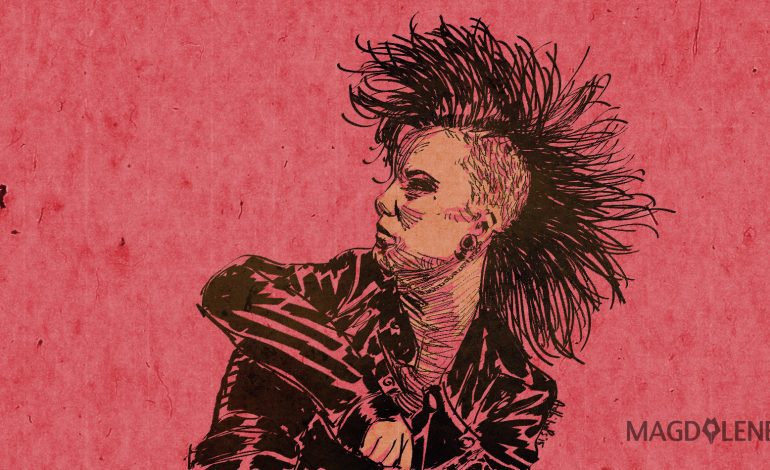Why I would Fight to Defend My Tattoos and My Non-Binary Expression

A tattoo is an art that has a personal story. Each tattoo has a different meaning. I began to ink my skin a year ago when I realized that I have to love and accept myself. For me, to have a tattoo is a way to self-love, to accept myself. And I enjoy it when a tattoo artist is working on my skin.
But having tattoos and non-binary presentation as your gender performance can be challenging if you study in an Islamic university like me. It’s painful to be stared by people as if I was a creature that is about to extinct. Sometimes they would bully me, saying things about how tattoos are bad. Cis-hetero people also find it’s hard to see a non-binary person in society. The worst thing is they insist that I choose my gender according to my genital.
There’s only one lecturer who accepts me. The others would say things like, “You should cover up your tattoos since it’s an Islamic campus.” Or “Tattoos are forbidden in Islam.” Or “It’s such a shame to see you with tattoos when you should’ve worn a veil.”
But I am too afraid to argue with lecturers who say things like these, so I never say anything back to them.
Tattoos are no different than the veil: both are symbols to communicate. How you see a person with tattoos is based on your perception of them, and how you see a person with any religion attribute is based on your perception of the religion. You can’t tell people with tattoos to cover up their ink. You also can’t touch the people with tattoos without their consent (Believe me, people do this. Once a guy touched the tattoo on my neck uninvited).
Also read: Living in Two Bodies: My Secret Sexual Liberation
I never ask women to take off their veil to show their hair. I choose to tolerate them – although it feels as if the Islamists are breathing down my neck and threatening to suffocate me with their morality policing. So what makes these people thing they could tell me to cover up my tattoos? Why do I have to apologize for own my body? Do they ever have to apologize for wearing a veil or any religious attributes?
To me tattoo is a way to tell a story. Indigenous people of Indonesia have a long history of skin art, using tattoo to describe or symbolize events from the past. They write all sorts of things on their skin. How then did tattoo become a forbidden thing now?
I might be afraid when people keep asking me to cover up my tattoos, or when they preach to me their religious point of view. Still, I will never cover up or remove my tattoos to satisfy them. The ink on my body is my expression of self-love and my way to fight any attempts to control my body. If people find my tattoos problematic, they will just have to deal with it.






















